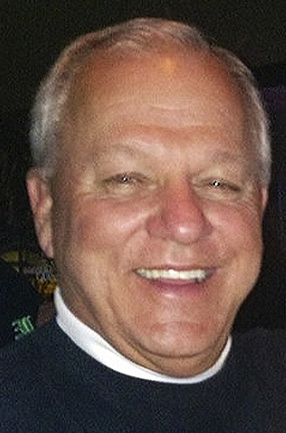A former Lewiston police chief falsified documents while attempting to qualify for Maine Clean Election funds, the Maine Ethics Commission determined.
An investigation was launched by the commission after its staff noticed inconsistencies in the signatures submitted by candidate William Welch and the signatures on file with the Secretary of State’s Office.
Welch was running as the Republican nominee in the Senate District 21 race against incumbent Sen. Nathan Libby. Welch announced June 28 that he was dropping out of the race, citing family medical issues.
Senate District 21 includes the entire city of Lewiston.
“I did something stupid and I wish I hadn’t,” Welch said in an interview Tuesday. “I wasn’t trying to defraud anyone or gather signatures that weren’t legal.”
In a 12-page letter to Welch dated June 20, ethics commission Executive Director Jonathan Wayne said Welch falsified at least 10 signatures of contributors on his application for public campaign funds. The Receipt and Acknowledgment forms submitted by Welch “contained false statements by you as the forms’ circulator that the contributors’ signatures on the forms were genuine,” Wayne wrote.
The commission staff denied Welch’s request for public funding after it determined that 42 of the qualifying contributions submitted were not valid, leaving Welch with less than the required 175 qualifying contributions, Wayne said.
“We look at these applications for public campaign funds very closely because we want to make sure that public funds are paid only to candidates that qualify the correct way,” Wayne said in an interview. “The overwhelming majority of candidates are very conscientious in how they go about receiving and spending these funds. This is very rare.”
Wayne said commission staff routinely compare donor signatures on checks and the receipt forms, and that the Welch investigation was not prompted by a complaint. While reviewing Welch’s application, candidate registrar Erin Gordon found discrepancies between the signatures of several contributors on the Receipt and Acknowledgment forms and the signatures on the checks or money orders they used to make the contributions, according to the commission.
After comparing all documents, commission staff identified 19 instances in which it appeared that someone other than the contributor had signed their name, including one case where it appeared someone other than the contributor signed a money order, according to the commission. A detective with the Attorney General’s Office interviewed three people who contributed to Welch and found they had never signed the Receipt and Acknowledgment forms, according to Wayne.
Welch told the detective that he had signed the forms for 10 to 12 people, according to Wayne.
“Although you claimed to the investigator that the contributors had authorized you to sign their names, this claim of authorization was inconsistent with the information that the three contributors provided to the investigator,” Wayne said in the letter to Welch.
Welch retired from the Lewiston Police Department in 2009 after a 34-year career, including more than 11 years as police chief. He now runs several restaurants in the city. When he launched his bid for state Senate, Welch said several close friends dropped off $5 checks at his restaurant when he wasn’t there, so they didn’t sign the receipt form.
“They said ‘Jeez, can you sign this for me?’ or they were close friends and I knew they wouldn’t have a problem with me signing it,” Welch said. “I thought it wasn’t a big deal, but it obviously was. In my mind, I was trying not to inconvenience anyone.”
If he had qualified as a Clean Election candidate, Welch would have received $2,000 for the primary race and at least $20,000 for his general election campaign against Libby.
Wayne said the commission has no plans to take any punitive action against Welch, though he said the Attorney General’s Office could pursue legal action against him. Welch did not appeal the commission’s determination.
“At this point, the matter is concluded as far as our office is concerned,” Wayne said.
The Attorney General’s Office is aware of the ethics commission’s staff determination and is reviewing it, said spokesman Timothy Feeley.
Under the clean elections law, violations are punishable by a civil fine of up to $10,000, as well as a Class E criminal prosecution for willful violations, for which the maximum penalty is six months of incarceration and a $1,000 fine.
Welch, who praises the “great job” the commission did during the investigation, said the commission’s ruling did not influence his decision to leave the race. Before the primary election, he was unsure if he’d be able to stay in the race because of his obligations caring for sick family members, he said.
“As a lot of you know, my father is not doing well and is receiving hospice in my home. I also have other family medical issues that just don’t allow me to campaign or represent the people of Lewiston the way they deserve,” Welch wrote in a June 28 Facebook announcement about his decision to drop out of the race. “I hope you all understand that family comes first and I need to support and be with the people I love.”
Gillian Graham can be contacted at 791-6315 or at:
Twitter: @grahamgillian
Send questions/comments to the editors.





Comments are no longer available on this story